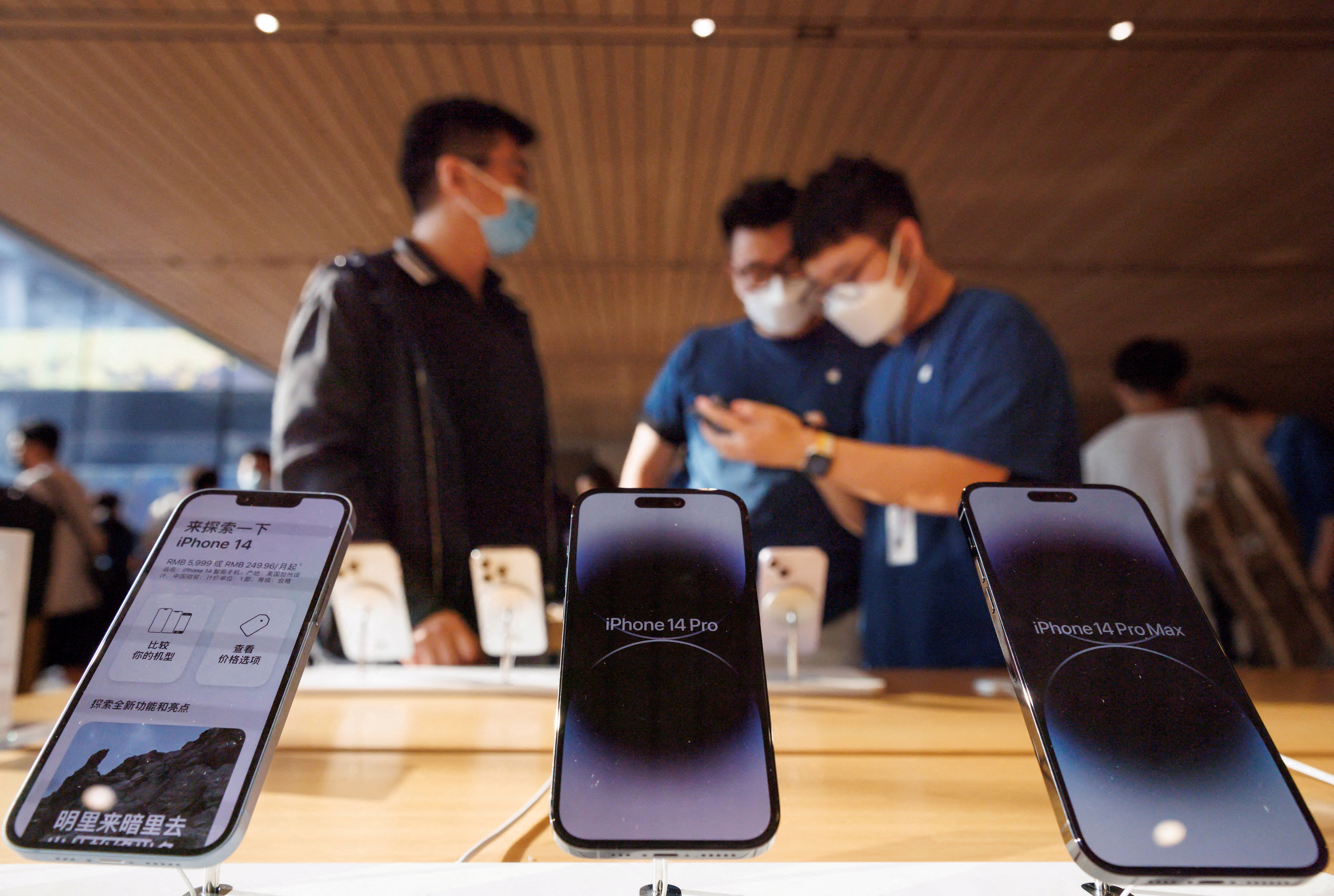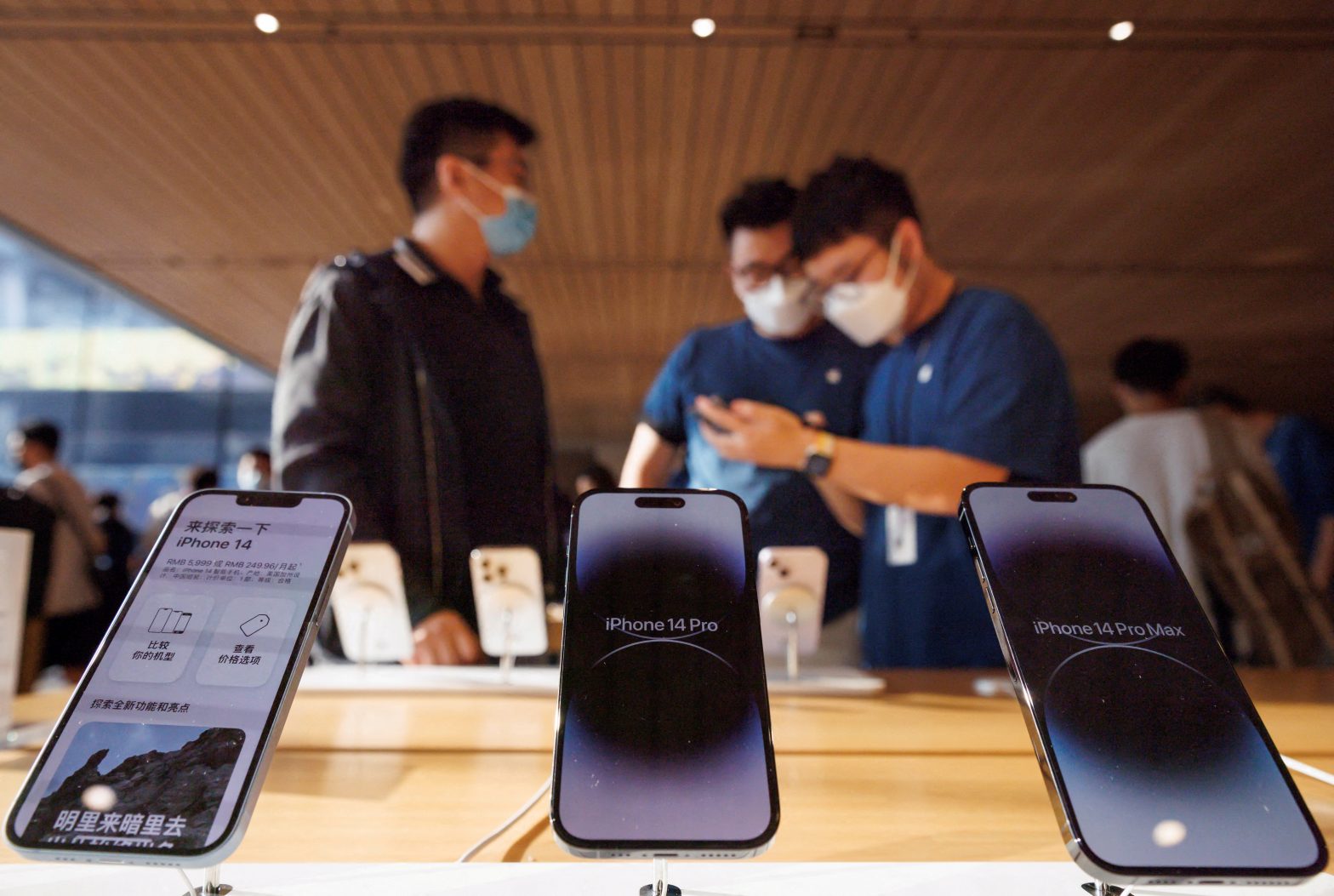
A customer talks to sales assistants in an Apple store as Apple Inc’s new iPhone 14 models go on sale in Beijing, China, September 16, 2022. REUTERS/Thomas Peter/File Photo Acquire Licensing Rights
Sept 7 (Reuters) – Apple fell nearly 4% on Thursday and sparked a selloff in tech stocks after reports that China has widened curbs on iPhone use by government staff in one of the U.S. company’s biggest markets.
The world’s most valuable firm (AAPL.O) was set to lose around $100 billion in market value after suffering its worst one-day drop in more than a month on Wednesday.
Apple suppliers and companies with large China exposure including Broadcom (AVGO.O), Qualcomm (QCOM.O) and Texas Instruments (TXN.O) fell between 1.4% and 4.7%. The iPhone maker’s drop also weighed on the three main U.S. stock indexes.
Reuters reported earlier in the day that Beijing told employees at some central government agencies in recent weeks to stop using their Apple mobiles at work.
The reported move deepened fears about the financial toll from rising tensions between Washington and Beijing.
The U.S. has in recent years restricted China’s access to key technologies including cutting-edge chips, while Beijing has tried to reduce its reliance on American tech and curbed shipments from U.S. firms including planemaker Boeing (BA.N).
Several Wall Street analysts said the curbs on the iPhone show that even a company with a good relationship with the Chinese government and large presence in the world’s second-largest economy was not immune to rising Sino-U.S. tensions.
The moves by Beijing also come at a time when Apple is grappling with a decline in iPhone sales, with China being a bright spot in what was an otherwise disappointing quarterly earnings report last month.
“The restrictions have the potential to slow Apple’s sales growth in China. This could provide an additional challenge for the company,” said D.A Davidson analyst Tom Forte.
Some analysts have also warned of a potential sales hit due to Huawei’s new Mate 60 Pro smartphone, which is powered by an advanced chip made by Chinese contract chipmaker SMIC (0981.HK) and marks a breakthrough for the duo hit by U.S. sanctions.
The sanctions had hammered Huawei’s sales in its home country and allowed Apple to take some market share from the national favourite.
“If Huawei has the capability to supply and scale its home-grown Kirin 9000S (chips), we see the Mate series phone as an opportunity for Huawei to increase its shipments and regain its market share,” analysts at Bofa Global Research said.
Apple could, however, see a demand boost after an event next week where it is expected to unveil its iPhone 15 line-up, as well as new smartwatches.
Reporting by Aditya Soni in Bengaluru; Additional reporting by Jaspreet Singh; Editing by Shounak Dasgupta
Our Standards: The Thomson Reuters Trust Principles.
